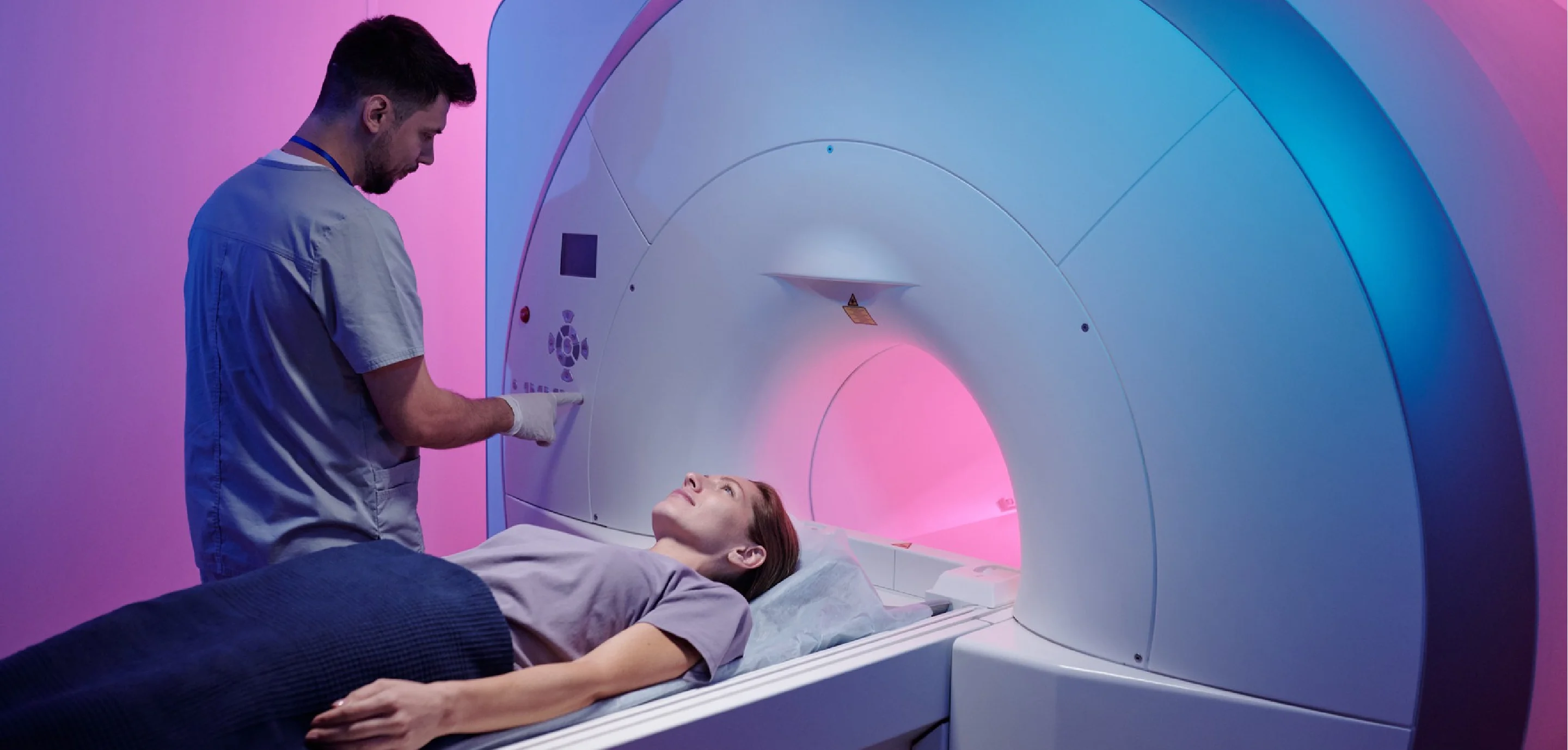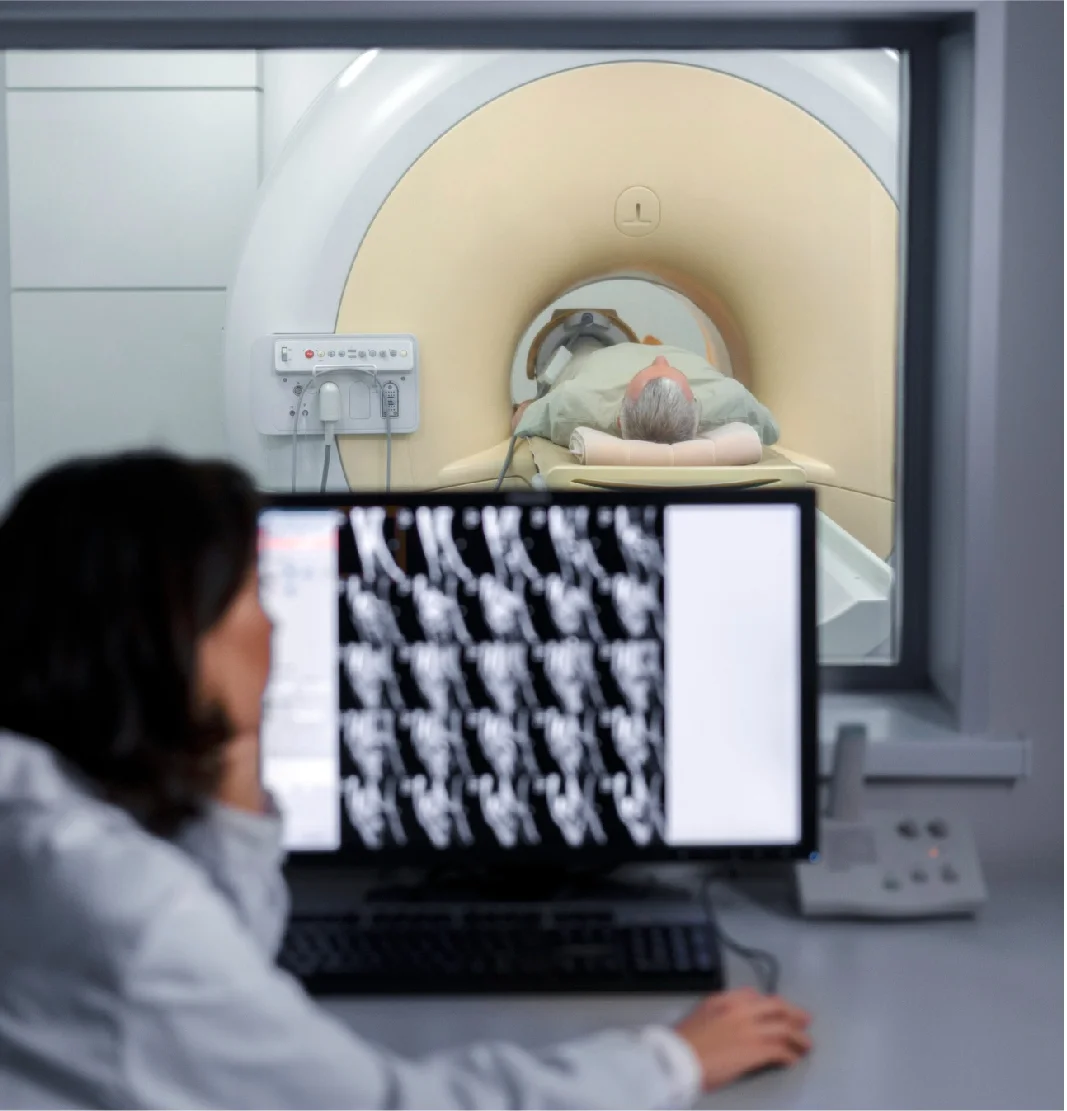
Welcome to Bhagwan Mahaveer Cancer Hospital & Research Centre (BMCHRC), a beacon of hope and healing for individuals confronting Radiation Therapy Facilities. Our institution stands as a pillar of comprehensive care, where cutting-edge treatments merge with compassionate support to guide patients towards optimal health outcomes.
Welcome to Bhagwan Mahaveer Cancer Hospital & Research Centre (BMCHRC), where we provide comprehensive radiation therapy services to support patients in their fight against cancer. Our radiation oncologists, medical physicists, radiation therapists, and support staff are dedicated to delivering high-quality care with compassion and expertise.

At BMCHRC, we understand the significance of personalized treatment plans and state-of-the-art technology in radiation therapy. Our facilities offer a range of services tailored to meet the needs of each patient:

BMCHRC's Radiation Therapy Facilities are equipped with advanced technology and infrastructure to ensure the safe and effective delivery of Radiation Therapy :

Our team of Radiation Oncologists, Medical Physicists, and Radiation Therapists are highly trained and experienced in delivering Radiation Therapy treatments:

At BMCHRC, we prioritize patient safety and treatment quality by implementing rigorous quality assurance measures:
Meet our esteemed team of medical professionals, each equipped with years of specialized expertise and unwavering dedication to patient care.
Request a callback from our healthcare specialist
Radiation Therapy, also known as Radiotherapy, is a treatment method that uses high-energy radiation to target and destroy cancer cells. It can be used as a Primary Treatment or in combination with other Therapies, such as Surgery or Chemotherapy.
Radiation Therapy can be used to treat various types of Cancer, including but not limited to Breast Cancer, Prostate Cancer, Lung Cancer, Head and Neck Cancer, Brain Tumors, and Gastrointestinal Cancers.
Radiation Therapy works by damaging the DNA of Cancer Cells, which prevents them from growing and dividing. The goal is to kill Cancer cells while minimizing damage to surrounding healthy tissue.
Radiation Therapy itself is painless. However, some patients may experience side effects during or after treatment, such as Fatigue, Skin Irritation, Nausea, or changes in Bowel Habits, depending on the area being treated.
The duration of Radiation Therapy treatment varies depending on factors such as the type of Cancer, the location and size of the Tumor, and the treatment goals. A course of treatment may last from a few days to several weeks.
Radiation Therapy is generally considered safe when administered by trained professionals using modern equipment and techniques. The benefits of treatment are carefully weighed against the potential risks, and measures are taken to minimize side effects.
During Radiation Therapy sessions, patients lie on a treatment table while a machine delivers radiation to the targeted area. The treatment itself is painless and typically lasts only a few minutes. Patients may need to undergo imaging scans for treatment planning and verification.
Hair loss is not a common side effect of Radiation Therapy unless the treatment is directed at the scalp. However, some patients may experience thinning of hair in the treatment area, which is usually temporary and resolves after treatment ends.
In most cases, patients can continue their normal activities during Radiation Therapy, although they may need to avoid strenuous exercise or activities that could irritate the treatment area. Your healthcare team will provide specific guidance based on your individual circumstances.
Your healthcare team will monitor your progress throughout the course of Radiation Therapy treatment. This may include imaging scans and physical examinations to assess tumor response and any changes in symptoms. The effectiveness of Radiation Therapy varies depending on the type and stage of cancer being treated.
Most Radiation Therapy treatments are delivered on an outpatient basis, meaning you can go home after each session. In some cases, such as when a patient requires continuous monitoring or specialized care, a short hospital stay may be necessary.
Your healthcare team may recommend dietary modifications to help manage potential side effects of Radiation Therapy, such as Nausea or changes in Appetite. They will provide personalized guidance based on your individual needs and treatment plan.
It's important to communicate any side effects you experience during Radiation Therapy to your healthcare team. They can provide supportive care and may recommend medications or other interventions to help manage symptoms and improve your comfort.
In many cases, Radiation Therapy is used in combination with other Cancer treatments, such as Surgery, Chemotherapy, Immunotherapy, or Targeted Therapy. Your healthcare team will develop a comprehensive treatment plan tailored to your specific Cancer type and stage.
Radiation Therapy to certain areas of the body, such as the Pelvis or Reproductive Organs, may impact Fertility or Sexual function. Your healthcare team can discuss potential risks and options for preserving fertility or managing sexual side effects before starting treatment.